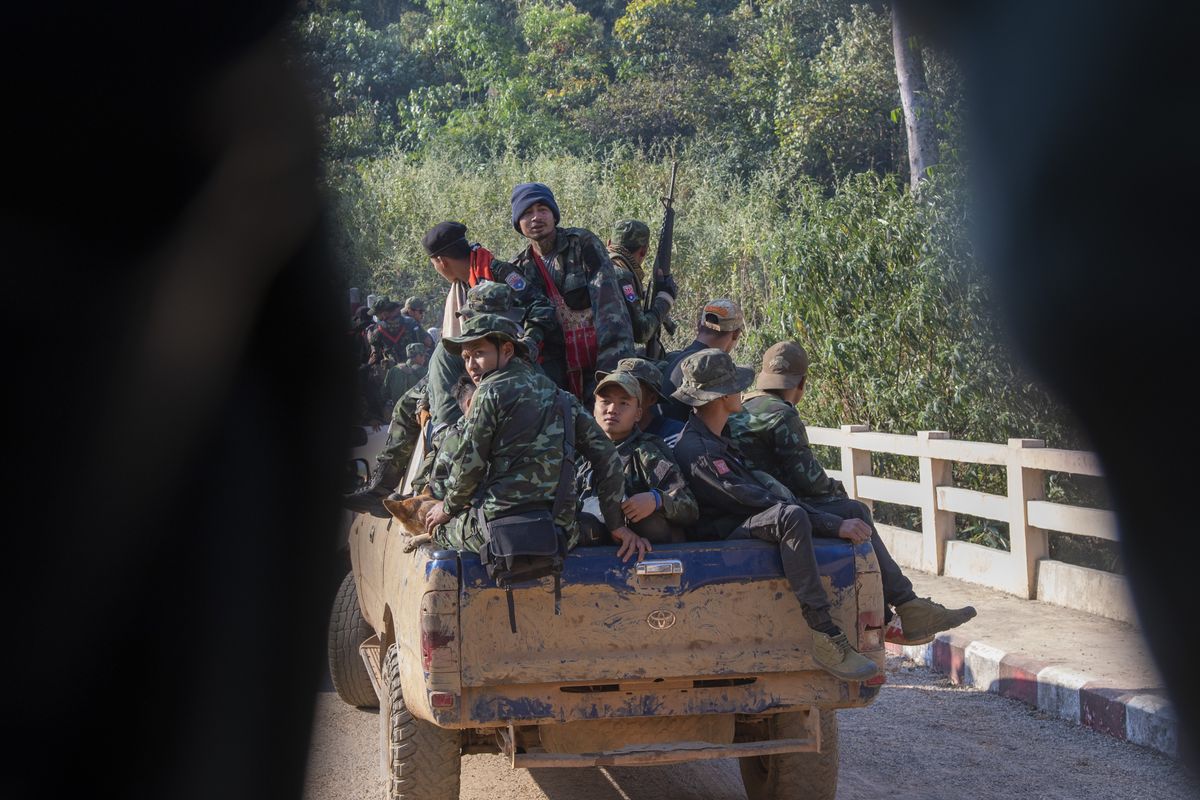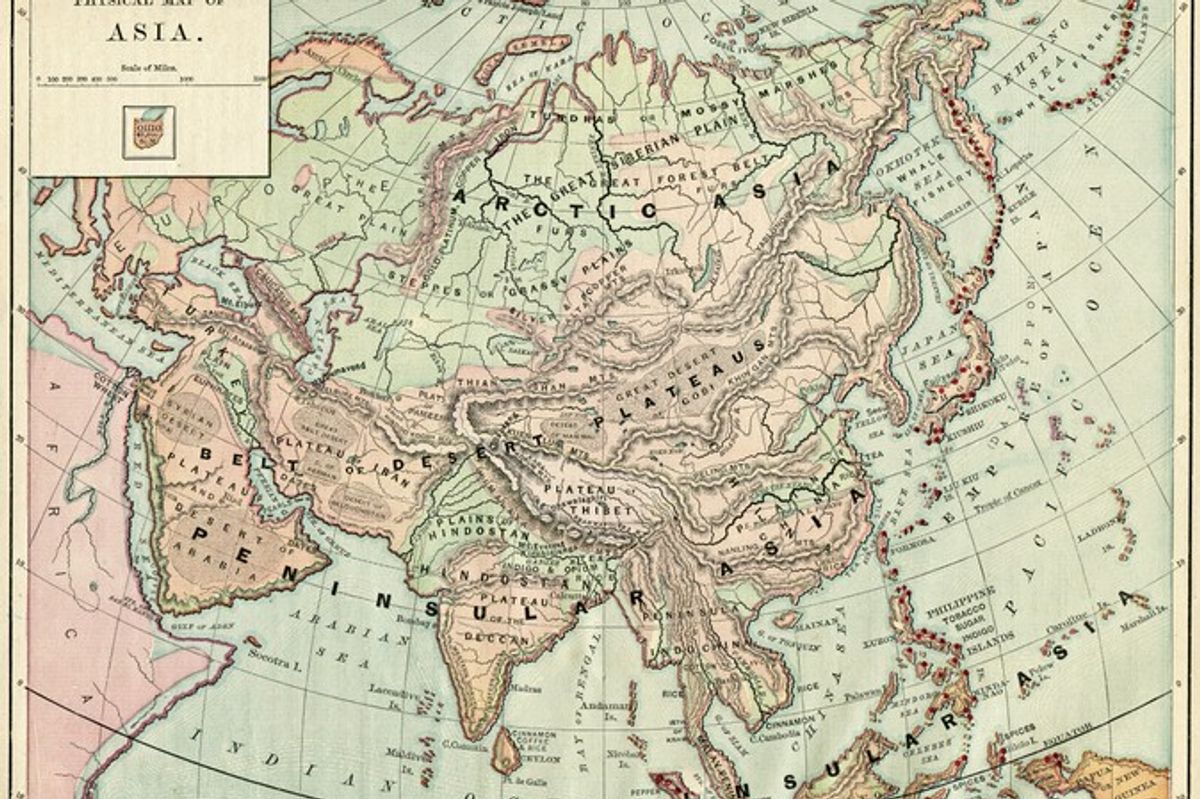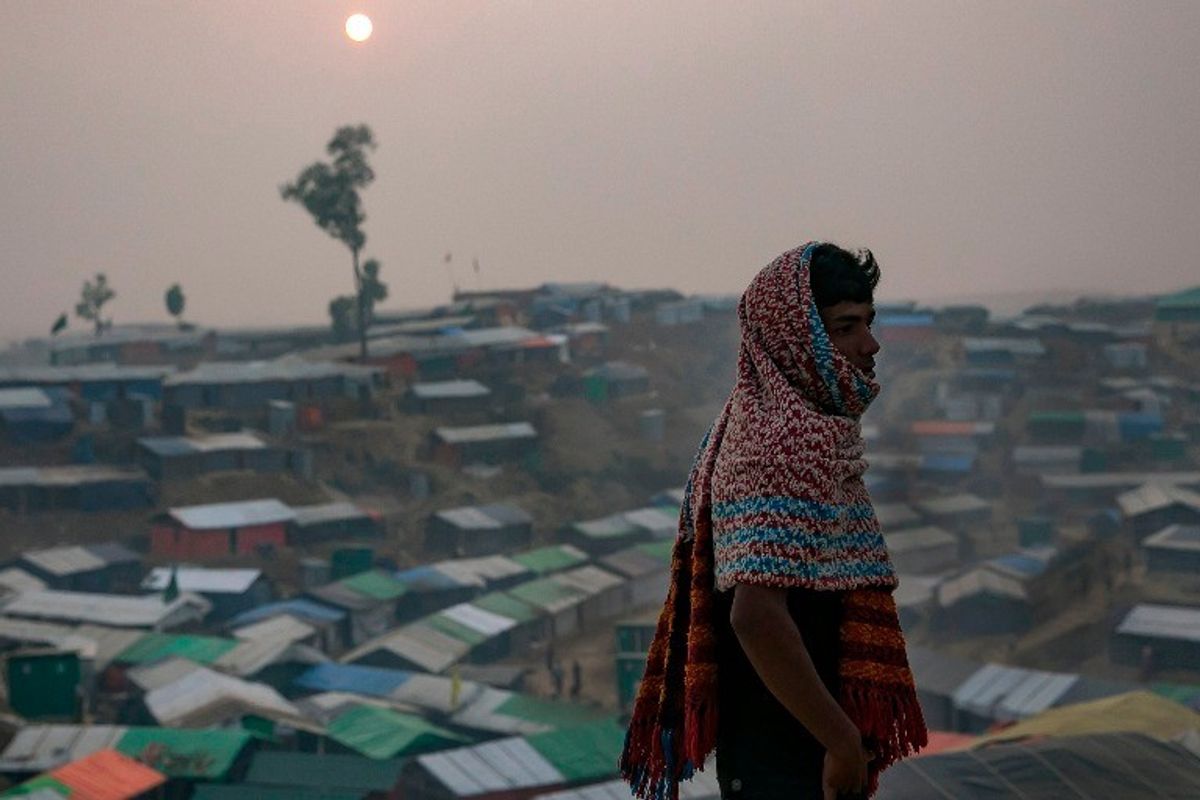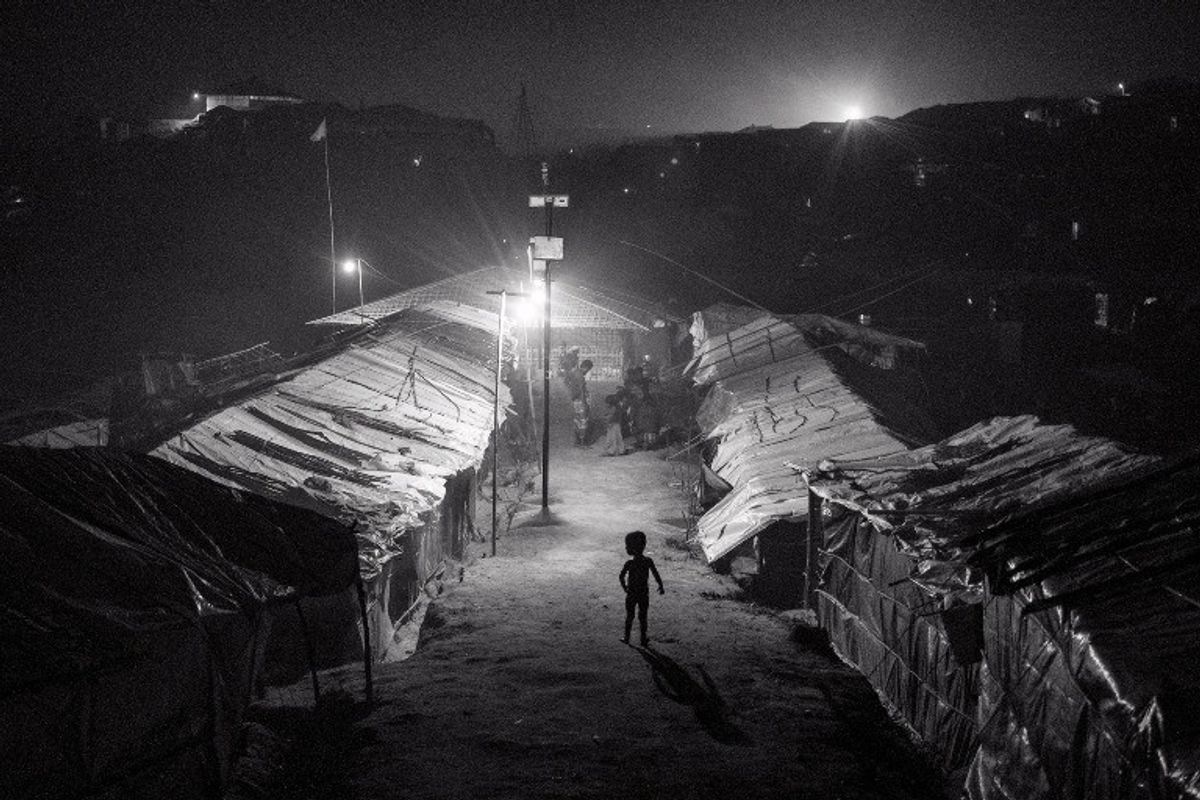The Cipher Brief spoke with David Miliband, President of the International Rescue Committee (IRC) and former British Foreign Secretary, about how the international community should tackle humanitarian crises from Syria to Afghanistan, South Sudan to Myanmar – the topic of his new book, “Rescue: Refugees and The Political Crisis of Our Time,” which is released on Nov. 14.
With hundreds of thousands of mainly Muslim Rohingya fleeing violence at the hands of the majority Buddhist population since August, TCB’s Leone Lakhani started by asking what the IRC has witnessed on the ground.
There are two group of Rohingya in the public eye at the moment. 600,000 who are arriving in Bangladesh, and we’ve been doing assessments of their needs. They’re obviously extraordinarily traumatized. They’ve been driven from their homes. They were living in some degree of poverty before, but they’ve lost husbands, wives, children. They’ve been separated from their families. They have suffered abuse along the way. So, you’ve got some very obvious concerns about health, especially with pregnant women, gender-based violence against women and girls, and children separated from their families. That’s the group that are arriving in Bangladesh.
Then, in Rakhine state itself, the population that remains – about 400,000 – have been cut off, some of them from health care for 6-8 weeks. The International Rescue Committee was the largest health provider in that state last year. So, it’s very important that we see that there are those remaining as well, who have needs too.
With these challenges, Miliband explains what he sees as the long-term options for the Rohingya.
All residents, all citizens have full and equal rights. That was raised by Kofi Annan, the former Secretary-General of the United Nations. He produced a report for the Burmese – the Myanmar – government. He said his commission argued that full and equal rights were the only foundation for a stable society for all those living in Myanmar.
Many may not know that Myanmar itself is a very ethnically and religiously divided society. It has been for a very long time. It had a number of armed resistance movements that are not linked to the Rohingya. There are refugees flowing from the other side of Myanmar into Thailand for those reasons.
So, the first long-term option is obviously that those who continue to live in Myanmar have the full and equal rights that the Annan Commission mentioned. But there’s also the case that those who have fled as refugees into the neighboring states, like Bangladesh, need to have their rights respected too. They need to be recognized as refugees, which does come with protections in international law, notably the protection not to be sent back to somewhere that’s unsafe. So, there are obligations on the Bangladesh government and the international community there as well.
Miliband also warns about the threat of humanitarian crises, like the one in Myanmar, that could lead to radicalization.
I’m a great believer that if you neglect the humanitarian conditions in which people live, if you neglect the social and economic opportunities that people have, it’s not that you turn them over night into radicals and terrorists, but you create the conditions in which instability can breed. It makes sense, really, that just as political crisis and war create a humanitarian crisis, a humanitarian crisis creates political instability.
There’s no question that if you’re a Rohingya man or woman still living in Burma, in Myanmar, and large numbers of your neighbors and family and friends have been driven out of the country, you’re going to have a very challenging view of the rest of that country. You’re going to look upon your fellow citizens, especially since they deny your citizenship in a very different way.
Across the world, whether in Myanmar or in Nigeria or in the Middle East, the neglect of humanitarian needs is frankly, don’t take my word for it, [former U.S. Secretary of State] Madeline Albright called it a petri dish for radicalization. That is the great danger. By neglecting the social and economic conditions in which people live, you fuel the instability that created the refugee flows in the first place.
Given the plight of refugees from Myanmar to Syria, Miliband describes the international community’s key responsibilities.
First of all, both in Rakhine state in Myanmar, but also in Syria and elsewhere, the first call has to be to stop the killing. The first stop of politics is to stop the killing, and to stop the rape and the pillage that’s going on of minority communities. The abuse of international humanitarian law, even in war situations, the bombing of hospitals, the attacks on civilians.
Secondly, I think wherever a population has fled to – whether within a country like in Nigeria or across borders in the Myanmar-Bangladesh case – we need to do a far better job of meeting long-term needs. It’s an international scandal that less than two percent of the global education budget goes into education, when half of all refugees and displaced people are children. So, the second thing is to update the humanitarian system. We’ve got to do a better job as a global system in helping people to not just survive, but thrive after they’ve been displaced.
The third thing that’s obviously vital is that the responsibilities and burdens are shared so that it’s not just the poor and lower-middle income countries that are affected. One of the important things about the refugee resettlement program in the United States, which has historically taken about 90,000 people a year, is that it offers a symbolic stand as well as substantive help: a symbolic stand with the countries hosting refugees and a substantive help to refugees themselves.
It’s an international as well as a national tragedy that the Trump Administration decided to target the refugee program as one that they want to cut. They’ve more than halved the number of refugees who are allowed to come to the U.S. and that is an injury to the U.S., given their record of refugees here. There’s also injury to the international system, which depends on the sharing of responsibility, not the abdication of responsibility.
With a degree of intolerance sweeping the world against refugees and immigrants, he says the best way to combat the trend is by listening to refugees tell their stories.
On the one hand, there is some fear-mongering going on. I’m afraid President Trump, when he talks about Syrian refugees being a Trojan horse, even though no Syrian refugee has ever killed any American, is contributing to that.
On the other hand, not just in the U.S. but across the world, for every person who’s standing up to say refugees should be feared, there’s someone else standing up to say, hang on, this is part of my family history. This is part of the international compact. This is part of what it means to live in a civilized world because these people are victims of terror, not terrorists themselves.
How does one combat it? In my experience, the best thing is not me talking about it. It’s actually refugees themselves speaking about their own stories. Talking about what it means to be separated from their families. Talking about what it means to spend 15 years in a refugee camp. Talking about what it means to a country that offers freedom, and how precious that is. There’s no silver bullet on this. There’s no simple answer. But I think that if we can get the voices and the stories of the refugees themselves out, that is the best antidote to the fear-mongering and the hate.
Miliband shares his own family ties to refugees and describes what he’s learned from their experiences.
People look at me and they don’t immediately think of someone who’s linked to refugees. My dad was a refugee from Belgium in 1940. My mom was a refugee from Poland in 1946 for the UK. I’ve learned a couple of things. First of all, today’s refugees are a different religion from my family. There is a different world of politics today. But the trauma and the sacrifice and the resilience of refugees is absolutely extraordinary. I hoped I’d have had the strength of my mother to survive in hiding during World War II and to then come out the other side. So, the resilience I think is one thing I’ve learned.
The second thing I’ve learned is that refugees are people. In the headlines [when you see] statistics of 65 million people displaced by conflict and persecution, 25 million of them refugees, 40 million internally displaced, the great danger is that we lose sight of the human stories. That there is a factory worker from Aleppo, that there is a baker from Damascus, that there is a farmer from South Sudan. That there is a dentist from Kabul. These are people, and it’s the human stories that we have to hold on to. When you’re running an NGO, your job is to try and make the world better, one life at a time. And that’s what we’re trying to do.
Hear the full “15 Minutes” interview with David Miliband, available here. You can also subscribe to TCB’s “15 Minutes” podcasts on iTunes.
Editor’s Note: This story was updated on Nov. 13 to better reflect Leone Lakhani’s questions.












